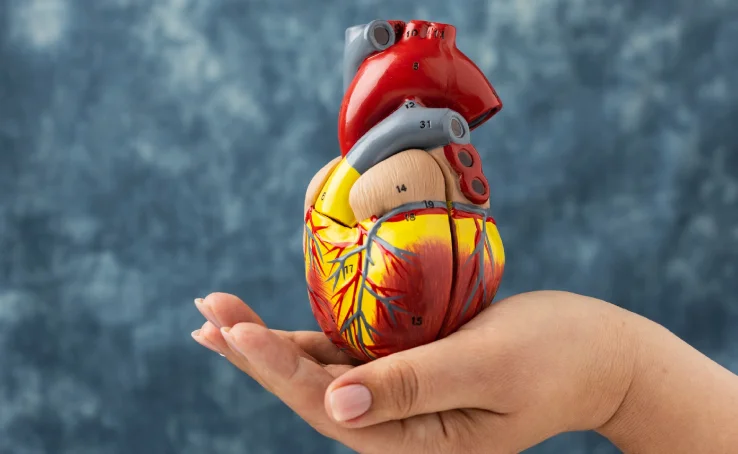Share your medical reports and get an exclusive offer tailored to your needs, requirements and preferences
Avg Price: $ 3800-$ 15000


Treatment Time
Recovery Time
Hospitalization Days
Success Rate
Cardiovascular Diseases (CVDs) include a range of heart and blood vessel disorders and stand as the primary global cause of mortality. In 2019, an estimated 17.9 million individuals succumbed to CVDs, constituting 32% of total global deaths, with 85% attributed to heart attacks and strokes. Valvular Heart Disease (VHD) significantly contributes to a decline in physical well-being and a deterioration in the quality of life, emerging as a primary factor in global cardiovascular morbidity and mortality. A significant majority of CVD-related deaths occur in low- and middle-income nations.
However, the shifting demographics of the population, advancements in imaging technologies, increased access to diagnosis and treatment, patterns of migration, enhancements in heart valve replacement surgery, and the introduction of more advanced procedures are the key factors that have led to evolution in the survival rate from Valvular Heart Disease (VHD). The efforts directed towards enhancing prevention, detection, and treatment of VHD are helping in alleviating the global healthcare burden. Globally, approximately 280,000 heart valve replacements occur annually, with the mitral and aortic valves being the most frequently replaced.
Better medical facilities have emerged, leading to the widespread availability of Coronary Interventions and Cardiac Surgeries in major Indian cities, particularly the metros. The increasing expertise, coupled with heightened awareness and improved affordability among patients, is poised to have a more positive impact in upcoming years. The ongoing development of newer techniques is expected to enhance both short-term and long-term outcomes of Heart Valve Replacement Surgery.
India boasts numerous healthcare facilities that hold certifications from ISO, JCI, and NABH. Some of the world's leading heart surgeons practice in the country. Patients can be assured of high standards in both treatment and post-operative care, eliminating concerns about quality. The proficiency of Indian doctors and nurses in fluent English ensures seamless communication throughout the medical experience. Therefore, people worldwide have excellent chances to access these services from the best doctors for heart valve replacement surgery and best hospitals for heart valve replacement surgery in India. If you're seeking insight, today, we will shed light on this procedure and its details.
Heart valve replacement surgery addresses issues with a valve that is either too constricted or doesn't close properly. Efficient valve function is essential for guiding blood flow in the correct direction through the heart. Surgical options for heart valve procedures encompass open-heart surgery, minimally invasive techniques, or accessing the heart through veins. The recovery period typically ranges from one to two months, depending on the specific surgery performed.
Why Is Heart Valve Replacement Surgery Needed?
Heart Valve Replacement Surgery is performed to manage the heart valve diseases, which can manifest in two primary forms:
Individuals may require heart valve replacement surgery if the disease is impacting the heart's ability to effectively pump blood. In cases where there are no apparent signs or symptoms or the condition is mild, doctors may recommend regular monitoring along with lifestyle adjustments and medications to manage symptoms.
In some cases, this heart surgery may be advised even in the absence of symptoms, especially if the individual is undergoing surgery for another heart-related condition. The decision to undergo the surgery, including the consideration of minimally invasive procedures, is a collaborative discussion between the patient and the doctor. Eventually, the affected valve may need repair or replacement, a decision that depends on the specific circumstances.
When possible, Heart Valve Repair is often preferred, as it preserves the natural valve and may maintain heart function. However, there are situations where valve replacement becomes necessary and is deemed the most effective option. Doctors also assess whether minimally invasive heart surgery is suitable for the patient, discussing the potential benefits and risks associated with each procedure.
Take Charge of Your Health
Book a Free Consultation

Here are the types of Heart Valve Replacement surgeries:
Before Surgery
Discuss with your doctor the following aspects before undergoing Heart Valve Replacement Surgery:
Preparation on the day of surgery:
The surgical area will be prepared by shaving and cleaning, a routine performed by a healthcare provider. To prevent infection, your skin may be washed with a specialized soap. When preparing for the surgery, bring along loose and comfortable clothing, as well as easy-to-put-on shoes. If you wear a bra, consider bringing one that can be put on without requiring you to raise your arms. The person accompanying you to the hospital can hold onto these items during the surgical procedure.
Your Health is Our Priority
Book a Free Consultation
You will be administered anesthetics to induce a sleep-like state for the procedure, and a heart-lung bypass machine will be employed to maintain blood circulation throughout.
If your heart valve is not amenable to repair, and a catheter-based procedure is not viable, replacement of the valve may become necessary. In this process, your doctor removes the impaired heart valve and substitutes it with either a mechanical valve or a valve crafted from the tissue of cow, pig, or human hearts (biological tissue valve).
Biological valves may require eventual replacement due to natural breakdown over time. In the case of a mechanical valve, lifelong intake of blood-thinning medications is necessary to prevent blood clots. Your doctors will engage in discussions with you to weigh the risks and benefits associated with each type of valve.
Heart Valve Replacement Surgery can be conducted through standard Open-Heart Surgery, which entails an incision in your chest through the Breastbone. Alternatively, minimally invasive heart surgery involves smaller incisions compared to Open-Heart Surgery. Certain heart valves may be replaced through a minimally invasive catheter procedure. For instance, a catheter-based approach might be employed to introduce a replacement valve into a biological valve in the heart that is malfunctioning.
Minimally Invasive Heart Surgery encompasses procedures using elongated instruments inserted through one or more small chest incisions (Thoracoscopic Surgery), surgery through a small chest incision, or surgery conducted with robotic assistance (robot-assisted heart surgery).
Opting for Minimally Invasive Heart Surgery may result in a shorter hospital stay, faster recovery, and reduced pain compared to Open-Heart Surgery. It is advisable to undergo Minimally Invasive Heart Surgery at medical centers with experienced medical teams proficient in performing such procedures.
Potential risks associated with Heart Valve Replacement Surgery encompass:

Following your Heart Valve Replacement Surgery, you can anticipate spending a day or more in the intensive care unit (ICU). During this period, you will receive fluids and medications intravenously, while tubes are utilized to drain urine from the bladder and fluids and blood from the chest. Oxygen may be administered through a mask or nasal prongs.
After your ICU stay, you will likely be transferred to another hospital room for several days. The duration of your hospital stay hinges on your overall health and the specifics of your surgery.
Post-surgery, your medical team will diligently monitor your health, keeping a close eye on potential signs of infection at the incision sites. Regular checks of blood pressure, breathing, and heart rate will be conducted. The team will collaborate with you to manage any post-surgery pain.
As part of your recovery plan, you'll be encouraged to engage in regular walking to gradually enhance your activity levels. Additionally, coughing and breathing exercises are recommended during the recovery process.
Throughout your recovery, you will receive specific instructions to follow, including:
Avail the Expert Health Advice
Book a Free Consultation
Most Heart Valve Replacement Surgery demonstrate high success rates, contributing positively to patients' well-being. Although there may be instances where valves require replacement in the future, advancements in medical science enhance the overall effectiveness of these interventions.
In a 2021 Swedish study encompassing 33,018 individuals undergoing aortic valve replacement surgery, the findings indicated a lower life expectancy among those who had undergone the procedure. However, it's important to note that not all deaths during the follow-up period were attributed to heart-related issues.
Additionally, a 2019 study published in the Journal of Cardiothoracic Surgery, involving 324 participants who underwent mitral valve replacement, presented encouraging statistics:
The cost of Heart Valve Replacement Surgery in India is generally more affordable than Western nations, while still maintaining world-class quality. The typical price range for such procedures in India spans from INR 2.97 lakh ($3600) to INR. 10,00,000( $ 12,578).
| Location | Minimum Cost ($) | Average Cost ($) | Maximum Cost ($) |
| Delhi | $ 5500 | $ 10000 | $ 15000 |
| Mumbai | $ 5500 | $ 10000 | $ 15000 |
| Chennai | $ 3800 | $ 5000 | $ 12000 |
| Hyderabad | $ 4200 | $ 8000 | $ 12500 |
The comparative cost of Heart Valve Replacement Surgery in India with respect to other countries:
| Location | Minimum Cost ($) |
| US | $80,000 |
| UAE | $25,000 |
| Mexico | $12,500 |
| Turkey | $10,000 |
Following are the factors affecting cost of Heart Valve Replacement Surgery in India:
The expenses associated with the preliminary assessments and examinations conducted prior to the heart valve replacement surgery might cover various diagnostic procedures. These additional charges encompass tests such as X-Rays, CT Scans (Computed Tomography), MRI Scans (Magnetic Resonance Imaging), Pulmonary Function Tests (PFTs), Carotid Doppler/Ultrasound Studies (Carotids), Ankle-Brachial Index (ABIs), Surface Echocardiograms (Echo), Vein Mapping, Trans-Esophageal Echocardiograms (TEE), ECG-gated SPECT myocardial perfusion imaging (Stress Test), Heart Catheterization (Cath), Cardiac Magnetic Resonance Imaging (MRI), and other diagnostic evaluations. The total expenses for these tests can vary between INR 1,00,000 and INR 1,50,000.
MedFlick, your trusted healthcare companion, is dedicated to ensuring that your medical journey goes as smoothly and successfully as possible.
Fostering expertise backed by commitment, resilience and years of experience, we connect you to a wide network of India's best doctors
Explore the most advanced, reputable and trusted hospitals in India, offering the highest levels of clinical and surgical excellence

The worlds most trusted personalized health community with more than 1,00, 000 members that share their journey, experiences and health insights. Join your community and get access to make informed health decisions.
Explore


